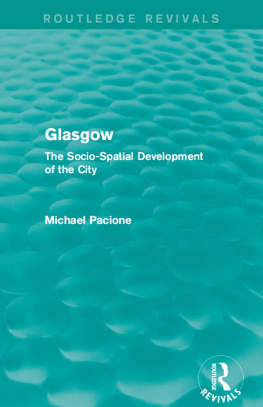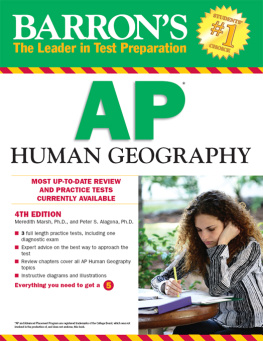Routledge Revivals
Progress in Political Geography
Since the 1970s, the field of political geography has undergone a significant transformation, where new methodologies have been implemented to investigate the exercise of the power of the state within the urban environment. First published in 1985, the essays in this collection addressed the growing need to assess the academic revisions that had been taking place and provide a reference point for future developments in the discipline. Still of great relevance, the essays consider the most prominent themes in areas of key importance to political geography, including theory and methodology, minority groups, local government and the geography of elections. This volume will be of significant value for students of political geography, urban demography and town planning.
First published 1985
by Croom Helm Ltd
This edition first published in 2013 by Routledge
2 Park Square, Milton Park, Abingdon, Oxon, OX14 4RN
Simultaneously published in the USA and Canada
by Routledge
711 Third Avenue, New York, NY 10017
Routledge is an imprint of the Taylor & Francis Group, an informa business
1985 Michael Pacione
All rights reserved. No part of this book may be reprinted or reproduced or utilised in any form or by any electronic, mechanical, or other means, now known or hereafter invented, including photocopying and recording, or in any information storage or retrieval system, without permission in writing from the publishers.
Publishers Note
The publisher has gone to great lengths to ensure the quality of this reprint but points out that some imperfections in the original copies may be apparent.
Disclaimer
The publisher has made every effort to trace copyright holders and welcomes correspondence from those they have been unable to contact.
ISBN 13: 978-0-415-70754-1 (hbk)
ISBN 13: 978-1-315-88671-8 (ebk)
1985 M. Pacione
Croom Helm Ltd, Provident House, Burrell Row,
Beckenham, Kent BR3 1AT
Croom Helm Australia Pty Ltd, First Floor, 139 King Street,
Sydney, NSW 2001, Australia
British Library Cataloguing in Publication Data
Progress in political geography. (Croom Helm
progress in geography series)
1. Geography, Political
I. Pacione, Michael
320.12 JC319
ISBN 0-7099-2087-3
Croom Helm, 51 Washington Street, Dover,
New Hampshire 03820, USA
Library of Congress Cataloging in Publication Data applied for.
Printed and bound in Great Britain
by Billing & Sons Limited, Worcester.
CONTENTS
To Christine, Michael John and Emma Victoria
Political geography is an avowedly pluralist field of enquiry which spans the major disciplines of geography and politics and maintains strong links with the related social sciences of economics and sociology. For most of this century, however, political geography was essentially an empirically oriented subject which concentrated on the study of geographical aspects of contemporary political events at the macro or national-international scale. The development of a theoretical and methodological basis for the subject was a relatively neglected issue. Since the early 1970s the nature of political geography has undergone a radical transformation. Traditional areas of study have been complemented by investigations related to the exercise of power at the intra-state and intra-urban scales. New method-ologies have been developed, particularly in the field of quantitative electoral geography, and a body of theory is accumulating. The range and volume of research undertaken testifies to the healthy eclecticism of modern political geography. Over the last two decades political geography has moved from being a moribund backwater into the mainstream of the discipline, and the study of political issues from a spatial perspective is an integral component of modern human geography.
This collection of original essays is designed to encapsulate the major themes and recent developments in a number of areas of central importance in political geography. The volume is a response to the need for a text which reviews the progress and current state of the subject and which provides a reference point for future developments in political geography.
Michael Pacione,
University of Strathclyde,
Glasgow.
Definitions of political geography abound, but a generally useful manifesto is that political geographers are concerned with the geographical consequences of political decisions and actions, the geographical factors which were considered during the making of any decisions, and the role of any geographical factors which influenced the outcome of political actions.
Early scholars interpreted geographical factors within an environmental-deterministic framework as witnessed by Greek models of the ideal state which sought to relate the facts of political life with the underlying physical conditions. Similarly, the development of political arithmetic in seventeenth century Europe, which entailed the cataloguing of the physical and human resources of a state, was founded on the belief that government policy should be based on a proper understanding of geography. This applied, empirical and essentially nationalistic approach was boosted by the military and strategic requirements of major wars, and remained the focus for political geography well into the present century. The period was characterised by studies of international boundaries and of ethnic and national groups, and by the emergence of theories such as Mackinders Heartland concept. The nationalistic element was taken to a corrupt extreme in German geopolitics. Thus the core of the subject, in the view of leading practitioners like Whittlesey and Hartshorne, remained the study of the relationship between the physical environment and political organisations and activities, but the emphasis was firmly on place rather than process. It is almost anomalous to note the origins of electoral geography being laid at this time by Siegfrieds (1913) study of voting behaviour in western France.
In the decades immediately following World War II political geography made relatively little progress as an academic subject. Attention continued to focus upon traditional macro-scale issues, with some consideration given to contemporary events such as the process of decolonisation. Since 1970, however, the scope and character of political geography has changed dramatically in response to a number of factors. These include (a) a growing interest in questions of public policy at the intra-state level, (b) a concern with social welfare issues, such as equity and deprivation, and the working of the political systems which produce such resource distributions, (c) the development of a scientific research methodology, and (d) the emergence of new theoretical models including the political-economy perspective.
Conflict arising from the pursuit of self-interest by states, interest groups or individuals is a fundamental element of society, and therefore of political geography and the twin concepts of power and conflict continue to underlie political geography at all scales. Since the state is one of the most powerful institutions in the contemporary world the role of the modern state and how it affects the life chances of the citizens is of particular concern to political geographers. For much of the subjects history, the focus has been on the state and its relationships within the international community. Currently, however, more research effort is being directed to the relationship between political and geographical factors within the state. Neither of these perspectives, however, is of greater importance than the other; both are essential to the development of political geography. Indeed, adoption of a world economy perspective to further understanding of political processes, activities and outcomes would suggest that the division between macro- and micro-scale investigations in political geography may be more illusory than real.



